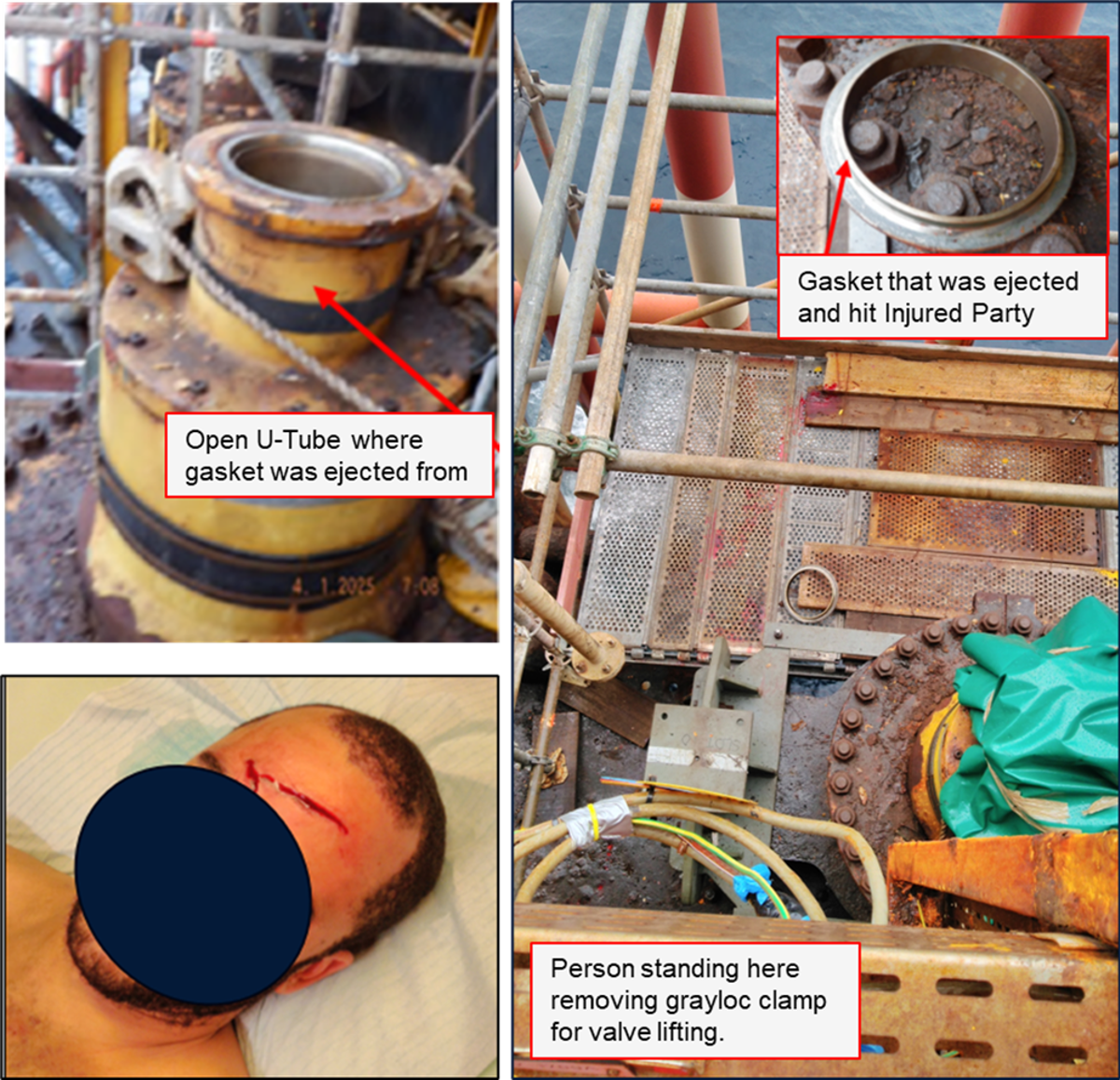High potential incident: Worker injured when opening a flanged assembly
- Safety Flash
- Published on 3 July 2025
- Generated on 21 February 2026
- IMCA SF 12/25
- 2 minute read
Jump to:
A member of a team of workers dismantling subsea emergency shutdown valves (ESDV) on deck, was badly injured when hit by parts of a valve which were ejected with force.
What happened?
The team had, successfully and without any problems, already dismantled three valves / ESDV as per the plans for that night. As the last valve was being disconnected, the Grayloc connection between the jumper and valve, along with the gasket inside the line, were ejected with force. The ejected gasket hit one worker on the forehead, resulting in a bleeding wound. The injured person remained conscious throughout and was assisted to the medic for treatment. The worker was treated by the medic and received seventeen stitches to the wound.
Investigation revealed the following:
- The lines had been flushed and isolated two weeks earlier and an isolation handover procedure and isolation certificate provided to the contactor.
- The activity was being carried out under the Site Permit to Work and in conjunction with SAT diving activities.
- No further check of the line was performed prior to starting the disassembly.
- Adjacent lines had been worked on and dismantled with no pressure present.
- Work by divers subsea had taken place on lines in the circuit allowing water to ingress.

What were the causes?
- Unidentified pressure in the line caused the gasket to be ejected with force;
- Lack of monitoring of system behaviour between isolation and start of the task;
- Lack of safety controls – no-one had manually rotated the valve and vented the system after actuator removal, thus ensuring no pressure.
Lessons and actions
- Never assume the absence of pressure – always check to monitor or identify pressure before starting work.
- Our member implemented:
̶ Pre-start work safety checks performed with an appointed safety leader to ensure that all safety controls are in place.
̶ Additional “hold point” in the task plans for checking / venting of subsequent lines for pressure.
̶ Close monitoring of subsea lines during and following diving operations on lines.
Related Safety Flashes
-
IMCA SF 11/24
3 June 2024
-
-
IMCA SF 12/23
16 May 2023
-
-
IMCA SF 07/23
13 March 2023
-
-
IMCA SF 09/24
30 April 2024
-
IMCA Safety Flashes summarise key safety matters and incidents, allowing lessons to be more easily learnt for the benefit of the entire offshore industry.
The effectiveness of the IMCA Safety Flash system depends on the industry sharing information and so avoiding repeat incidents. Incidents are classified according to IOGP's Life Saving Rules.
All information is anonymised or sanitised, as appropriate, and warnings for graphic content included where possible.
IMCA makes every effort to ensure both the accuracy and reliability of the information shared, but is not be liable for any guidance and/or recommendation and/or statement herein contained.
The information contained in this document does not fulfil or replace any individual's or Member's legal, regulatory or other duties or obligations in respect of their operations. Individuals and Members remain solely responsible for the safe, lawful and proper conduct of their operations.
Share your safety incidents with IMCA online. Sign-up to receive Safety Flashes straight to your email.